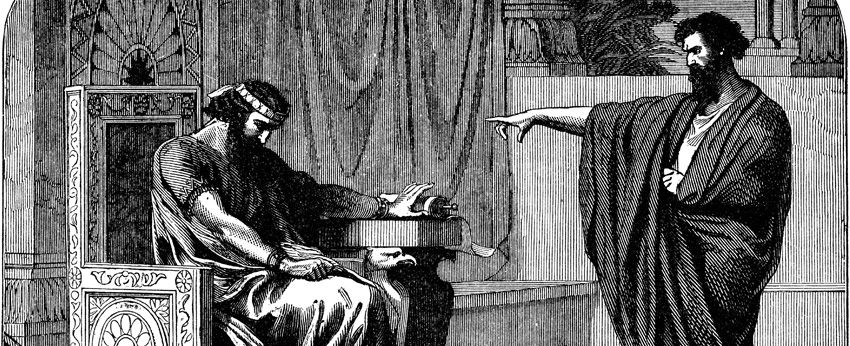The New Covenant

(By Rob McLeod)
Multiple covenants (or ‘testaments’) between God and human beings are presented within the pages of Scripture. Followers of Jesus may differ with respect to the exact number, interpretation, and interplay of these various covenants but no one can disagree that their existence provides a ‘unifying thread’ from Genesis through Revelation as God unfolds His divine plans and eternal purpose for believing men and women.
The intent of this article is to first provide the reader with a brief overview of the primary covenants recorded in Scripture. We then delve into a discussion surrounding how a believer today is to conduct themselves given the historical existence of these covenants between God and man. Do all of these covenants concern the believer today? How do these covenants progressively reveal the will of God for mankind? Does one covenant nullify or contradict the other? How is the instruction to abide in Christ (John 15:1-8), walk by the Spirit (Romans 8:4; Galatians 5:16), and to be fully pleasing to our Lord (Matthew 25:23; 2 Corinthians 5:9-10; 2 Timothy 2:4; 2 Timothy 4:7-8; Revelation 2-3) then carried out? A proper understanding of Scripture in these areas will facilitate our ability to walk a God-honouring life.
The first time that the term covenant is explicitly mentioned in Scripture occurs in Genesis 6:18 where the Lord guarantees Noah and his family safety from the flood waters should Noah build the ark. The Lord then reaffirms this covenant, giving the rainbow as a sign of His promise, and expands the details thereof in Genesis 9:9-17. Generations later, the ‘Abrahamic’ covenant followed and began with God’s promise to make a great nation of Abraham (Genesis 12:1-3) and that through his descendants “all of the families of the earth shall be blessed.” Further expansionary details concerning this covenant are provided in Genesis 15 and Genesis 17. In Acts 7:8 Stephen broadly refers to the Abrahamic covenant as the “covenant of circumcision” because all males submitting to this covenant were to be circumcised. The details provided in Genesis 15:12-14 foreshadowed the time when Abraham’s descendants would serve another nation under bondage. This nation turned out to be Egypt and the ‘Mosaic’ covenant (Exodus 19-24) was established shortly after these events (predicted in Genesis 15) took place. The covenant ratified at Mount Sinai essentially outlined the duties and moral obligations of the nation of Israel in order to remain a “special treasure” and a “kingdom of priests and a holy nation” (Exodus 19:5-6) in the land in which they were yet to conquer and inherit. By fulfilling their part of the oath of the covenant (Exodus 24:7) Israel was to be a set-apart nation (Leviticus 11:44) evidencing God’s blessings to the surrounding nations (Deuteronomy 4:6). Failure to carry out their part of the covenant would result in ‘death’—the forfeiture of Yahweh’s blessings and life in the promised land (Deuteronomy 30:15-20). Just as the ‘Noahic’ covenant (Genesis 9) outlined God’s guarantee to preserve humanity from another flood so the divine relationship between God and Israel was to be preserved and portrayed in part via the sacrificial worship system outlined in Leviticus. Crucial to this covenant agreement was provision for the cleansing from trespasses and sins. In particular, the atonement for Israel’s sin was made possible on the annual Day of Atonement (Leviticus 16). This sacrificial system demonstrated that without the shedding of blood there could be no forgiveness from sin (Hebrews 9:22) and foreshadowed the need for a superior blood sacrifice that could permanently deal with the sin, and sin nature, of mankind. The ‘Davidic’ covenant further unfolded the eternal plans of God (2 Samuel 7). David wanted to build a permanent, physical structure (that is, a temple) that would in a sense supersede the portable tabernacle built according to the pattern given to Moses. In response the Lord expanded David’s eternal vision and promised to build him a different type of house. The house that the Lord would build was to be a lineage, a dynasty even, led by an individual that would forever reign over the earth. In effect, the promise to David further clarified the covenant with Abraham recorded in Genesis. Whereas Genesis 22:18 states that through Abraham’s seed the world would be blessed, the Lord now notified Israel that the promised seed whose kingdom would be established forever would be a royal descendent of David.
Persistent apostasy and failure to follow the statutes of God resulted not only in a split within the nation of Israel after King Solomon’s reign, but eventually the sacking of Jerusalem, the demise of the monarchy, and a 70 year captivity within Babylon. Despite the Lord severely chastening Israel during this dark era we also observe indications of a new work yet to be accomplished within Israel. This work would be a renewal performed within the hearts of a God-seeking remnant and is referred to as a “new covenant” in Jeremiah 31:31-33: “Behold, the days are coming, says the LORD, when I will make a new covenant with the house of Israel and with the house of Judah—not according to the covenant that I made with their fathers in the day that I took them by the hand to lead them out of the land of Egypt, My covenant which they broke, though I was a husband to them, says the LORD. But this is the covenant that I will make with the house of Israel after those days, says the LORD: I will put my law in their minds, and write it on their hearts; and I will be their God, and they shall be my people.” Although the term “new covenant” is mentioned just once in the Old Testament, it is frequently alluded to in other places. For example, in Ezekiel 36:24-28 we read a prophecy of a changed heart within Israel and the giving of the Holy Spirit to faithful followers of Messiah: “For I will take you from among the nations, gather you out of all countries, and bring you into your own land. Then I will sprinkle clean water on you, and you shall be clean; I will cleanse you from all your filthiness and from all your idols. I will give you a new heart and put a new spirit within you; I will take the heart of stone out of your flesh and give you a heart of flesh. I will put My Spirit within you and cause you to walk in My statutes, and you will keep my judgments and do them. Then you shall dwell in the land that I gave to your fathers; you shall be My people, and I will be your God.” In describing this new covenant, we sense a culmination of previous covenants and a further maturation of the eternal plans of our God. We also see that this covenant of peace with Israel is closely associated with the coming Messiah (Isaiah 42:6-7; 49:5-8; 53:1-12; 55:3-5) and includes foreigners and Gentile (non-Jewish) nations (Isaiah 60:1-3).
The arrival of the long-anticipated Messiah, Jesus Christ, consummated a new era between the LORD, Israel, and the Gentiles. Scripture describes this era as being founded upon a “new,” “second,” or “better” covenant. In Luke 16:16 Jesus said, “The law and the prophets were until John. Since that time the kingdom of God has been preached, and everyone is pressing into it.” (Also see Matthew 11:13 for a similar statement by Jesus.) During the Passover meal with His disciples Jesus declared, “This cup is the new covenant in My blood, which is shed for you.” (Luke 22:20) The writer of Hebrews plainly states, “But now He [Jesus] has obtained a more excellent ministry, inasmuch as He is also Mediator of a better covenant, which was established on better promises. For if that first covenant had been faultless, then no place would have been sought for a second.” (Hebrews 8:6-7) The “first covenant” mentioned here refers to the covenant made with Israel, as recorded in Exodus 19-24. Its accompanying standards and instructions were recorded in the Mosaic law. The nation of Israel repeatedly failed to meet the law’s demands. Paul writes that the law given to Moses and Israel at Mount Sinai ultimately functioned as “our tutor to bring us to Christ, that we might be justified by faith.” (Galatians 3:24; also, see 1 Timothy 1:8-11) So the law decisively points out our sinfulness but is unable to bring divine life to the inner man of its adherents: “For if there had been a law given which could have given life, truly righteousness would have been by the law.” (Galatians 3:21) We also see from Hebrews 10:4 that “It is not possible that the blood of bulls and goats could take away sins.” The Old Testament sacrificial system was not sufficient, nor was it intended, to permanently deal with our sin. The law shows us God’s standard, and highlights our inability to meet it. The law’s demands can only be satisfied via faith in, and partaking of, the ultimate sacrificial Lamb—Jesus Christ. It is by putting our faith in the sufficiency of Christ and His shed blood that enables our heavenly Father to truly “pass over” us in mercy. Whereas the nation of Israel was required to apply a lamb’s blood to the doorposts of their homes in Egypt (Exodus 12) to avoid certain death we, figuratively speaking, apply Christ’s blood to the doorposts of our hearts. It is impossible to overstate the implications of this new covenant and it hinges upon the work that Jesus Christ accomplished via His death and resurrection. Jesus, as the initiator and mediator of the new covenant (Hebrews 10:9; Hebrews 12:24), is boldly declared to be the Messiah and Royal offspring of David (Revelation 22:16), the only perfect fulfiller of the Mosaic law (Matthew 5:17), the true Seed of Abraham (Galatians 3:16,19), the unchangeable and holy High Priest (Hebrews 7:23-24), the Minister of the true tabernacle (Hebrews 8:1-2), the resurrection and the life (John 11:25), and the ‘veil remover’ (2 Corinthians 3:14) for those previously under the law.
We have now Biblically established that under this new covenant salvation from sin is offered via Jesus Christ alone. But having entered into this new life in Christ (that is, having been ‘born again’ or ‘saved’) how do we properly walk in it? Much confusion has arisen amongst believers in this area. Questions that sometimes arise go something like this: If the law given to Moses depicts God’s standard then do I now at least try to adhere to it as a believer? If I desire to be an overcoming believer what do I need to do to please the Lord? Questions such as these can be answered by a proper understanding of what actually transpired at our initial salvation.
At the time of our repentance and placing faith in Christ a fundamental and life-changing shift happened in our inner being. The life of Christ, via the indwelling Holy Spirit, was birthed in us. John 3:6 says, “That which is born of the flesh is flesh, and that which is born of the Spirit is spirit.” While human parents beget human babies the Lord begets a new Spirit in us—His Spirit. Romans 8:15-16 says: “For you did not receive the spirit of bondage again to fear, but you received the Spirit of adoption by whom we cry out, ‘Abba, Father.’ The Spirit Himself bears witness with our spirit that we are children of God.” So, we do not need a certificate or confirmation from others that we are a child of God! Rather, God’s Spirit confirms it within our inner man, our spirit. All those born of God will come to recognize this witness within. Paul also writes, “Do you not know that you are the temple of God and that the Spirit of God dwells in you?” (1 Corinthians 3:16) Under the new covenant, God’s Spirit lives within believers. He does not live within a temple or tabernacle made by hands. We are now ‘saints’ and our bodies are to be a ‘holy’ (that is, set apart) dwelling place of God. To walk in this new life we need to be led by the source of this new life—the Spirit of God: “For as many as are led by the Spirit of God, these are sons of God.” (Romans 8:14) When we ‘walk’ by the Spirit we will not sin; rather, we will please our heavenly Father. Much of this walk in the Spirit is addressed in Galatians 5 so let’s spend some time there. First, Galatians 5:16 says, “Walk in [or, by] the Spirit, and you shall not fulfill the lust of the flesh.” To walk by the Spirit is to walk in obedience to, and fellowship with, the Lord. This is not merely a religious checklist to function under. It is to seek His direction in our daily lives and to obey it, no matter the personal cost. It is to seek Christ’s will first, not my personal agenda. Furthermore, it is to have Christ as our life and to be partakers of His divine nature! (Colossians 3:4; 2 Peter 1:4) Brothers, this is an amazing calling! We must also realize that there is a tension that exists here. Despite the life of Christ living within us we still possess the capability of walking in our old, sinful ways. That is why we are instructed in Galatians 5:16 to walk according to the Lord’s ways; that is, we have proper choices to make as we are led by His Spirit in our inner man. It goes further in Galatians to say: “For the flesh lusts [that is, wars] against the Spirit, and the Spirit against the flesh; and these are contrary to one another, so that you do not do the things that you wish. But if you are led by the Spirit, you are not under the Law.” (Galatians 5:17-18) We read that we are in a battle. And what a battle it is! Will my choices produce ‘life’ or ‘death’ in my walk with Christ? When we follow the Spirit’s guidance we will have life and our spiritual ‘cup’ will be a light and testimony to others as well. When we obey the Spirit, we will not commit the immoral acts that the law of Moses spoke against. You see, the fruit of a life led by the Lord is “love, joy, peace, longsuffering, kindness, goodness, faithfulness, gentleness, self-control. Against such there is no law.” (Galatians 5:22-23)
Being a believer means that I am “one spirit” with the Lord (1 Corinthians 6:17). This is a literal fulfillment of Ezekiel 36:24-28 and empowers us to have Christ’s law written on our hearts. When we walk according to God’s Spirit, our heart’s desire will be in perfect sync with the Lord’s heart. In Matthew 5:20 Christ is recorded as saying, “Unless your righteousness exceeds the righteousness of the scribes and Pharisees, you will by no means enter the kingdom of heaven.” The Lord describes the fulfillment of the law as coming down to a heart issue; we need a new heart. In Matthew 15:17-19 Jesus teaches: “Do you not yet understand that whatever enters the mouth goes into the stomach and is eliminated? But those things which proceed out of the mouth come from the heart, and they defile a man. For out of the heart proceed evil thoughts, murders, adulteries, fornications, thefts, false witness, blasphemies.” The religious crowd of Jesus’ day was bent on an outward show. However, the Lord always went straight to the heart. In Matthew 5 Christ makes repeated statements along the lines of “You have heard that is was said to those of old,” in describing the law’s commands. He then would say, “But I say to you…” For example, the religious crowd prided themselves in not committing the physical act of adultery. Jesus elevated the standard and said, “Whoever looks at a woman to lust for her has already committed adultery with her in his heart.” (Matthew 5:28) Who can stand before such a standard? People may pride themselves in “keeping the law” but let’s be honest—we cannot keep anything without abiding in Christ. “I am the vine, you are the branches. He who abides in Me, and I in him, bears much fruit; for without Me you can do nothing.” (John 15:5)
The Lord in His mercy and eternal purpose has grafted the believing Gentiles into His family (Ephesians 3:1-7; Romans 11). This profound revelation was also granted to Peter as recorded in Acts 10. In a vision to Peter, the Lord demonstrated that the uncircumcised Gentiles were not “common” or “unclean”; the gospel was to go to them as well. This represented a monumental shift in the thinking of the early church and much debate ensued regarding the need (or not) for circumcising believing Gentiles, the keeping of dietary laws, and celebrating the festal holidays described in Leviticus (see Acts 15 for starters). The vision granted Peter in Acts 10 began to show the leadership of the early church that what produced holiness and Godliness in followers of Christ was not due to what one ate or their circumcision status—it was a new heart. The new heart produced in the believer the ability to keep the greatest commandments of the law: “Jesus said to him, ‘You shall love the LORD your God with all your heart, with all your soul, and with all your mind. This is the first and great commandment. And the second is like it: You shall love your neighbour as yourself. On these two commandments hang all the Law and the Prophets.’” (Matthew 22:37-40) Christ declared that the commandment of sacrificial love for one another is a hallmark of life under the new covenant. “A new commandment I give to you, that you love one another; as I have loved you, that you also love one another. By this all will know that you are My disciples, if you have love for one another.” (John 13:34-35) Indeed, Paul wrote in Romans 13:8: “Owe no one anything except to love one another, for he who loves another has fulfilled the law.”
Living this new life in the Spirit did not come without some major hiccups even when it came to the conduct of the early apostles. Peter, for a time, ceased from eating with the new Gentile believers for fear of the opinion of believing Jews who preached continued adherence to the Mosaic law (Galatians 2:11-13). Paul publicly rebuked Peter for his hypocrisy and for the effect that it had on other believers, including Barnabas. From the record of this incident we receive the crucial Scripture that states: “For I through the law died to the law that I might live to God. I have been crucified with Christ; it is no longer I who live, but Christ lives in me; and the life which I now live in the flesh I live by faith in the Son of God, who loved me and gave Himself for me.” (Galatians 2:19-20) Although under the new covenant we are still free to abstain from certain foods (for example, pork) Paul writes in Romans 14:14 that “I know and am convinced by the Lord Jesus that there is nothing unclean of itself.” We are not to show contempt for one another because of differing convictions concerning the keeping of certain days or dietary laws. To do so would violate the greatest commandment of all (recall Matthew 22:37-40). Nevertheless, a preoccupation concerning what to eat, etc., is not the vision for kingdom life. Romans 14:17 says, “The kingdom of God is not eating and drinking, but righteousness and peace and joy in the Holy Spirit.”
In summary, the life of believers today is completely supplied by the life of Christ via His indwelling Spirit. We are grafted into His life and when we willfully abide in Him we will please Him and bring life to others as our cup overflows with genuine fruit of the Spirit. This divine, eternal life is provided to us freely by faith in Jesus at the time of our salvation and for eternity thereafter. It is not dependent upon cultural background, education, gender, circumcision status, or food preferences (Matthew 15:16-20; Romans 2:28-29; Galatians 3:28; 1 Timothy 4:4). As we mature in faith His work is evidenced by the spiritual fruit in our lives. “The fruit of the Spirit is love, joy, peace, longsuffering, kindness, goodness, faithfulness, gentleness, self-control. Against such there is no law.” (Galatians 5:22-23)










